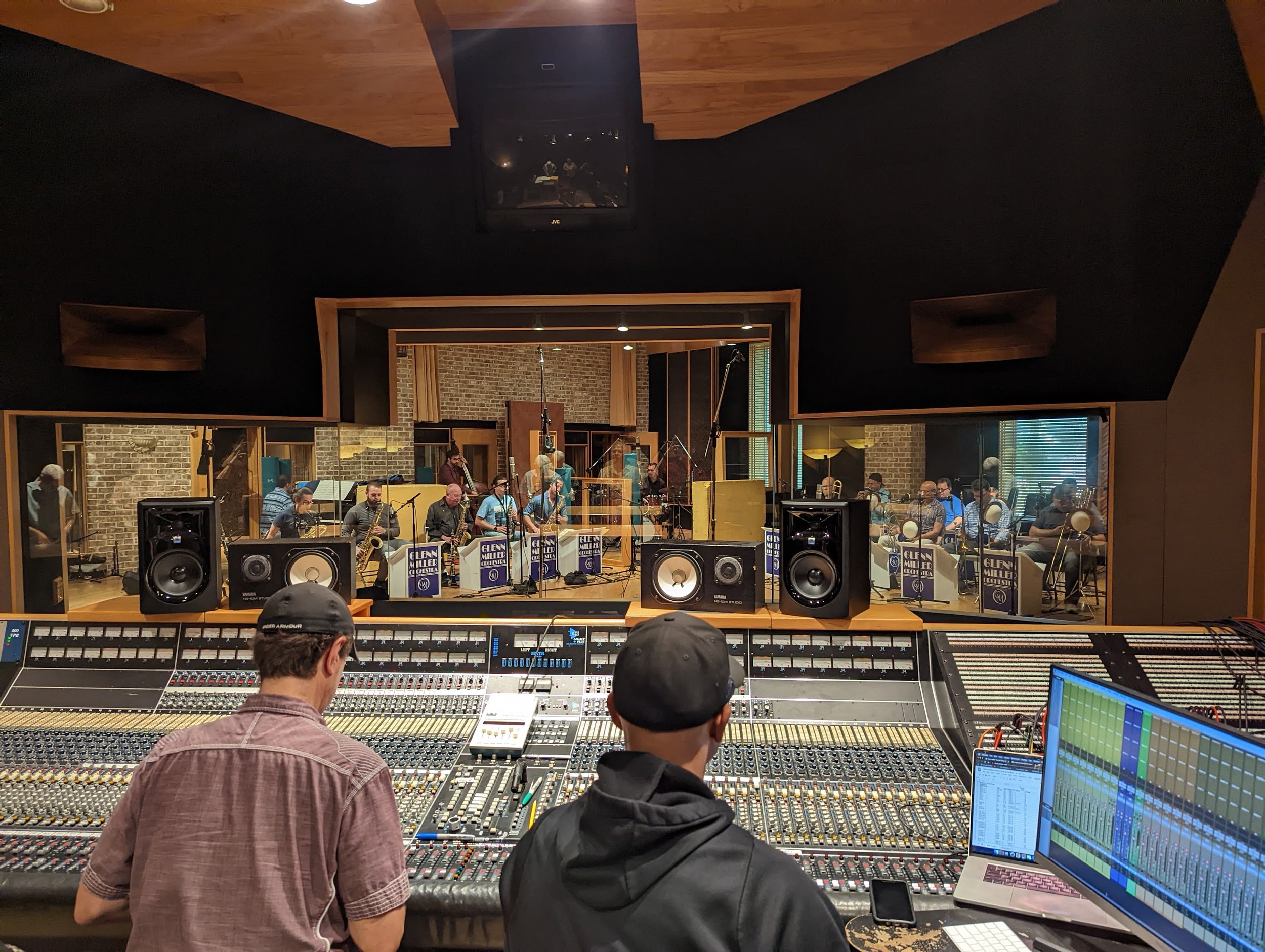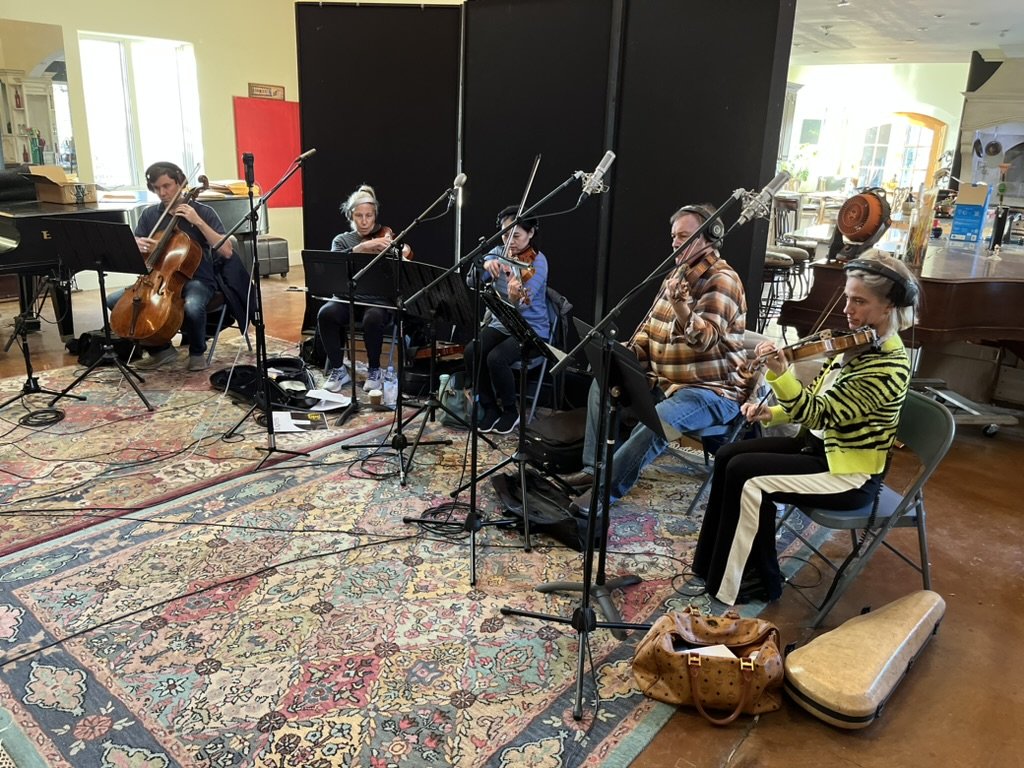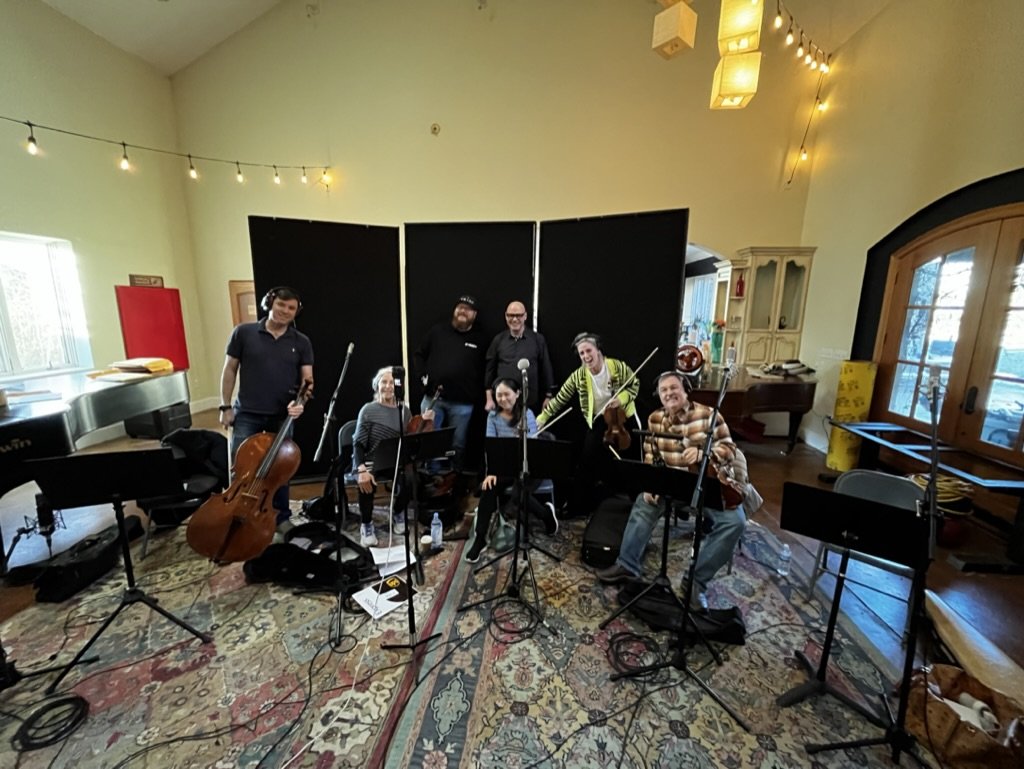
The Glenn Miller Orchestra
80th Anniversary of the Army Airforce Band
Newly Recorded With Strings
FEATURING GUEST APPEARANCE BY CRYSTAL GAYLE ON THE TIMELESS CLASSIC "SENTIMENTAL JOURNEY"
Recorded in Nashville, TN at Sound Kitchen Studios.







1) Moonlight Serenade (4:02)
2) In The Mood (3:36)
3) All I Do Is Dream Of You (2:05)
4) Sunrise Serenade (3:30)
5) Long Ago (And Far Away) (4:11)
6) I’ll Get By (As Long As I Have You) (3:14)
7) Cherokee (2:04)
8) Sentimental Journey (2:00)
9) Begin The Beguine (3:43)
10) Speak Low (4:06)
11) Pennsylvania 6-5000 (3:25)
12) I Know Why (And So Do You) (3:24)
13) Adios (3:34)
14) At Last (3:41)
15) Chattanooga Choo Choo (4:05)
ABOUT THE ALBUM (from liner notes written by Scott Yanoh)
This set begins with the most famous song that Glenn Miller ever composed, his theme song “Moonlight Serenade.” The beautiful, romantic and haunting melody is accentuated by the addition of the strings which really give the orchestra a very full and lush ensemble sound.
“In The Mood,” one of the most famous melodies of the swing era, actually had a long history before Miller recorded it. Trumpeter Wingy Manone was the first to wax the theme as “Tar Paper Stomp” in 1930 and the same song was featured by the Fletcher Henderson and Don Redman Orchestras during 1931-32 as “Hot And Anxious.” As the renamed “In The Mood” with an arrangement by Joe Garland, it was recorded by Edgar Hayes in 1938 and performed live by Artie Shaw. In 1939, Garland sold the song to Glenn Miller who, with a new arrangement by Eddie Durham, created a sensation. This new version has a tenor tradeoff by Erik Stabnau and Justin Williams along with a fine trumpet solo from Christopher Stine.
“Sunrise Serenade,” which was originally released by Miller on a ’78 that had “Moonlight Serenade” on the flip side, was composed by Frankie Carle. It was first recorded by Glen Gray’s Casa Loma Orchestra (Carle was on piano) shortly before Miller adopted the warm theme and had Bill Finnegan write his memorable arrangement. Erik Stabnau is featured on tenor throughout, displaying an attractive tone as he caresses the melody.
“Long Ago And Far Away” was composed by Jerome Kern and Ira Gershwin in 1944, a bit too late for the Glenn Miller Orchestra to record it. However it entered the repertoire of Miller’s Army Air Force Band with a vocal by Johnny Desmond. This nostalgic version of the World War II. song has tender singing by Erik Stabnau.
The next five selections are not necessarily associated with Glenn Miller but certainly give one an idea how they would have sounded if played by Miller’s civilian orchestra. The current band’s regular singer Jenny Swoish is in particularly fine form on “All I Do Is Dream Of You” (recorded by the Army Air Force Band with Dinah Shore in 1944) which is given a surprisingly touching treatment. “I’ll Get By” was a hit for Dick Haymes with Harry James but was originally a big seller for Ruth Etting back in 1929. Ms. Swoish really gets into the words during this slower-than-usual version which showcases the strings. A special mention should be made of Kevin Sheehan whose playing on lead alto and clarinet throughout this album (and in the band’s live performances) really captures the classic Miller sound.
“Cherokee,” which was composed by Ray Noble, was Charlie Barnet’s theme song and, in the bebop era, the inspiration for many stunning solos by altoist Charlie Parker. This relatively brief and swinging rendition recalls Barnet’s recording in spots.
Cole Porter’s “Begin The Beguine,” was Artie Shaw’s first hit and in 1938 rocketed the clarinetist to stardom. The unusually long chorus (104 bars as opposed to the usual 32) resulted in it being considered a flop during the three years before Shaw’s recording made it immortal. Glenn Miller’s band performed it on a radio broadcast in 1940 with a vocal by the Andrews Sisters but never officially recorded it. This version can be considered a tip-of-the-hat to both Shaw and the dancing team of Fred Astaire and Eleanor Powell who performed it in Broadway Melody Of 1940.
“Speak Low” (by Kurt Weill and Ogden Nash) caught on soon after its debut in 1943 and has been a jazz standard ever since. Few probably remember that it was originally a hit for Guy Lombardo! Glenn Miller’s Army Air Force Band with Johnny Desmond performed it regularly in 1944. Erik Stabnau’s singing on the new version swings lightly and is filled with quiet emotion.
Unlike the last few songs, “Pennsylvania 6-5000” will always be associated exclusively with Glenn Miller. The phone number of Hotel Pennsylvania’s Café Rouge where many swing bands performed served as the inspiration for Jerry Gray’s swinging piece. Feel free to sing along!
Jenny Swoish makes a welcome return on “I Know Why (And So Do You).” It was originally introduced in the film Sun Valley Serenade, a Hollywood movie most notable for a superb version of “Chattanooga Choo Choo” by the Miller Orchestra and the Nicholas Brothers. This rendition of the love song features superior singing, the strings, and the distinctive Glenn Miller reeds.
The infectious yet subtle “Adios” by Enric Madriguera had been around for a decade before Glenn Miller recorded his famous version in 1941. The interaction between the strings, reeds and brass is particularly appealing.
Many listeners probably assume that “At Last” was either written by or for r&b singer Etta James who first recorded it in 1960, but the Harry Warren piece was actually introduced by Glenn Miller in 1942. The previous year it was supposed to be included in the film Sun Valley Serenade but got bumped and instead was in Miller’s other movie Orchestra Wives the following year. It debuted on records with a Ray Eberle vocal in May 1942. The easily identifiable ensembles that could only be by the Glenn Miller Orchestra and Erik Stabnau’s singing return the song to its swing roots.
Concluding this release is a real classic. “Chattanooga Choo Choo,” written by Harry Warren and Mack Gordon, resulted in Glenn Miller being presented with the first gold record for selling over a million copies. The five-voice Moonlight Serenaders (Erik Stabnau, Jenny Swoish, Kevin Sheehan, Christopher Stein, and Dan Gabel) clearly have a great time with the song and the instrumental ensembles are full of enthusiasm.
Scott Yanow, jazz journalist/historian and author of 12 books including Swing and Life Through The Eyes Of A Jazz Journalist

